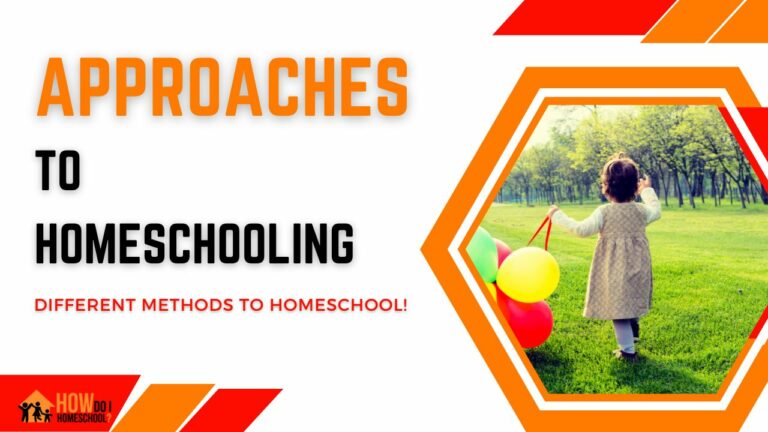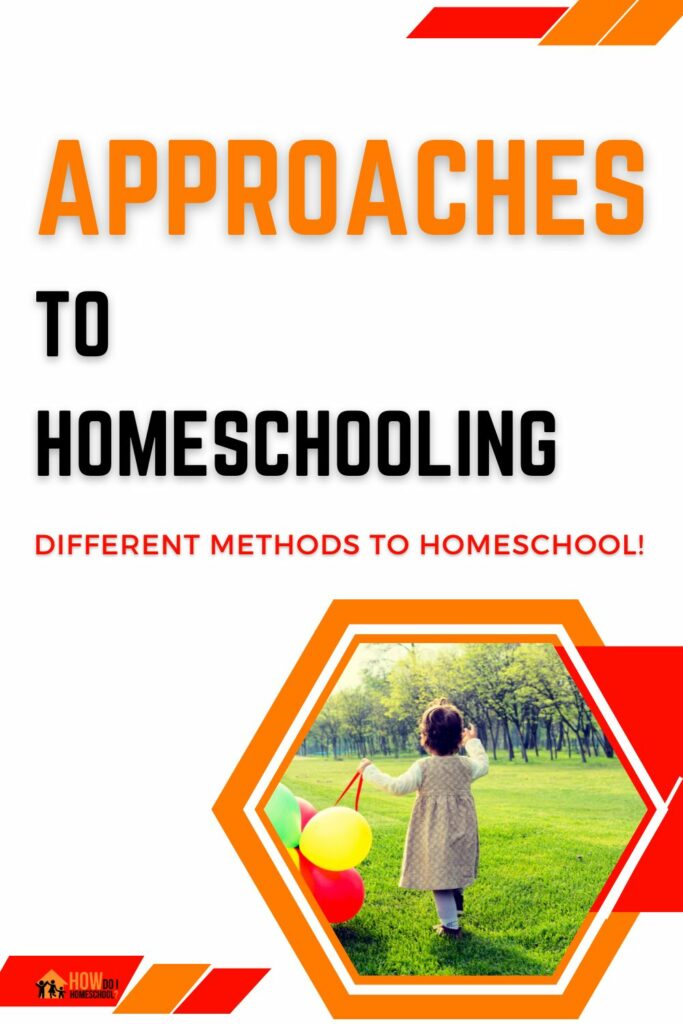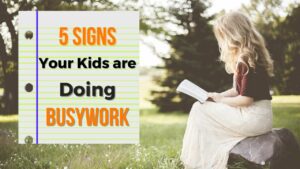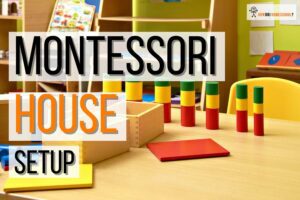Homeschooling is an increasingly popular educational option for families across the globe. There are many different approaches to homeschooling, and the method that works best for a family depends on the needs of the students and the parents. Some common approaches to homeschooling include the traditional, classical, and the Charlotte Mason methods.
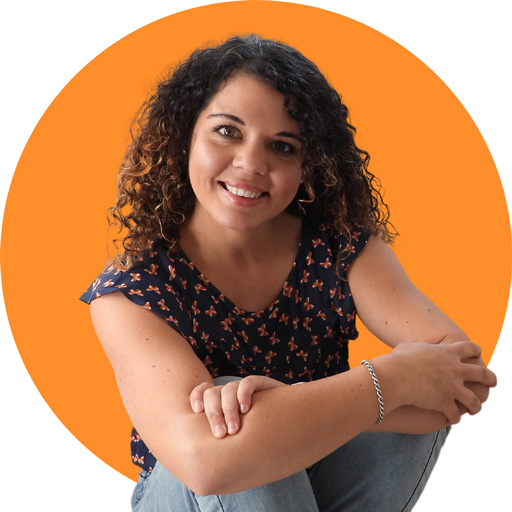
I hope you enjoy reading this blog post. If you want to do my course on how to homeschool, click here.
Let’s take a look at all of them below, though!
Approaches to Homeschooling
There are 10 approaches to homeschooling outlined below:
- Traditional homeschooling approach (school-at-home)
- Classical homeschooling
- Charlotte Mason
- Eclectic education
- Unschooling
- Montessori
- Unit study learning
- Waldorf
- Literature-Based Approach
- Lapbooking
Let’s go through these homeschooling approaches in more detail below.
(Make sure you take the free homeschool-style quiz to identify the right method for you.)
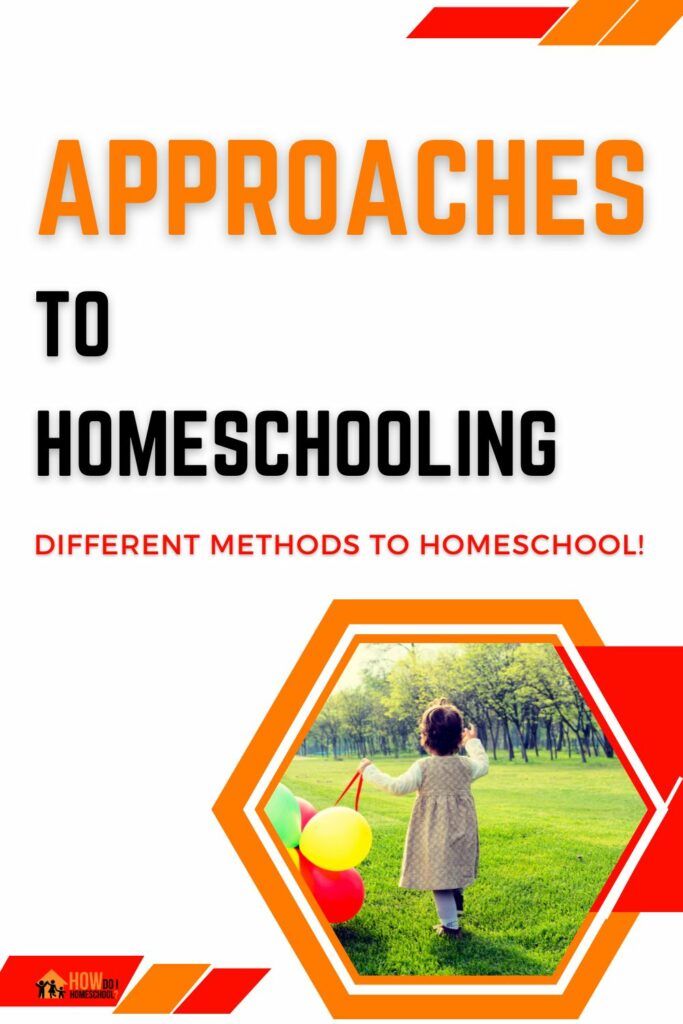
Affiliate links used in this post.
Traditional Homeschooling Approach (School-at-Home)
There are many different approaches to homeschooling, but the traditional approach is one of the most popular. This approach is based on more formal education, focusing on academics and structure.
Traditional homeschooling families often follow a curriculum that is similar to what is taught in public or private schools. A set schedule and lesson plans are usually followed each day. Homeschooling parents typically spend a few hours each day teaching their children, and the rest of the day is spent on other activities such as chores, extracurriculars, and free time.
One of the benefits of traditional homeschooling is that it can provide a more well-rounded education than public schools. Homeschooled children have the opportunity to learn about subjects that may not be covered in depth in schools, such as religion or history.
Best Curriculum for the Traditional Approach to Homeschooling
A great program to use if you like the Traditional Approach is the BJU Press curriculum. I love this program and use it with my children. The program teaches a biblical worldview and teaches using many different learning styles (i.e. with manipulatives as well as workbooks) to create an enjoyable and interesting program.
The BJU Press curriculum offers both an offline curriculum where you’re sent workbooks AND an online curriculum where you get the workbooks but can do video lessons with BJU Press.
Check out BJU Press.
Classical Homeschooling Approach
One of the most popular homeschooling approaches among parents these days is the classical approach. So, what is the classical approach?
The classical homeschooling approach is based on the teaching methods of the ancient Greeks and Romans. This approach focuses on teaching students through the liberal arts, which includes subjects such as grammar (in primary school), logic (in middle school), and rhetoric (in high school).
One of the main goals of the classical homeschooling approach is to help students develop a love for learning. This is done by exposing them to a wide range of subject matter, allowing them to explore their interests, and encouraging them to ask questions.
Modern Classical Christian education is based on Dorothy Sayers’ Lost Tools of Learning Essay. This adds a different Christian take on ancient Classical education.
Best Curriculum for the Classical Approach to Homeschooling
If you want an online classical homeschooling program, you can’t go past Compass Classroom. This program is written and filmed by educated classical homeschool parents for homeschool families. It’s highly entertaining and educational. It’s also very affordable.
If you want a paper-based, mailable homeschool curriculum, Memoria Press is a great option. This program has an award-winning Latin program that is well-loved.
Check out Memoria Press.
Charlotte Mason Homeschool Approach
The Charlotte Mason approach to homeschooling is a unique and custom way of teaching that is based on the philosophy that children are born persons with their own God-given rights. This approach to homeschooling was thought out by a classical educator who thought education needed a bit of tweaking.
This method is very cool because it was written specifically for homeschooling parents and therefore is customized for a much smaller ratio of teacher:children. It also recognizes the at-home education method is very different from schools’ way of doing things, and you can do things at home you can’t do elsewhere.
The Charlotte Mason approach uses living books, nature study, and narration to instill a love of learning in children.
This method has been shown to be highly effective in producing well-rounded, independent thinkers.
There’s a lot in this method, so I encourage you to spend a bit of time looking into it.
Best Curriculum for the Charlotte Mason Approach to Homeschooling
Heart of Dakota is a beautiful homeschooling curriculum to use if you’d like a mailable program.
Also, don’t forget that Compass Classroom, which is primarily classical, also teaches using the Charlotte Mason method.
You can also check out these Charlotte Mason homeschool curriculum options.
Eclectic education
The eclectic homeschooling approach is one option that allows parents to tailor the educational experience to their child’s individual needs and interests.
This approach is not as structured as some of the other homeschooling methods, but it can be very effective in meeting the unique needs of each child. Parents who choose this approach will often use a variety of resources, including books, websites, and educational materials from different sources. This flexibility can be beneficial for both the parent and the child, as it allows them to find the learning style and materials that work best for them.
If you are considering homeschooling your child, or if you are simply looking for a more flexible and customized approach to education, the eclectic homeschooling method may be right for you.
Best Curriculum for the Eclectic Approach to Homeschooling
Schoolhouse Teachers is a homeschool curriculum that gives you a massive amount of material. Because it is written by over 200 course creators, you’ll find you can teach using any approach you like. Schoolhouse Teachers is also incredibly affordable and they have a lot of sales. So check out Schoolhouse Teachers.
Unschooling Approach
Unschooling is an educational method and philosophy that emphasizes a child’s natural curiosity and ability to learn rather than a more traditional, teacher-led approach.
The unschooling approach is often seen as a more relaxed form of homeschooling, as it generally does not follow any set curriculum. Instead, learning is based on the interests of the individual child, with parents acting as facilitators rather than instructors.
This type of educational style can be beneficial for kids who learn best through exploration and hands-on experiences. It can also be helpful for families who want to have a more active role in their child’s education.
Best Curriculum for the Unschooling Approach to Homeschooling
You don’t need a curriculum if you’re using the unschooling method. But having one on hand can be helpful so you can use it to spark your children’s interest. You can also use it to fill an educational hole they may have.
Again, Schoolhouse Teachers is an excellent option here. The sheer breadth of material will mean you cover almost every base!
Literature-Based Approach
A literature-based approach to homeschooling is an educational method that uses literary works as the basis for learning. This approach is often used in conjunction with other methods, such as the Montessori method or the Charlotte Mason method. The literature-based approach can be used with any age group, from young children to adults.
Best Curriculum for the Literature-Based Approach to Homeschooling
One of the best curricula that uses this method is the Sonlight program (reviewed here).
This mailable Christian program is highly recommended (a few of my friends use it and like it).
A secular literature-based curriculum is Moving Beyond the Page (reviewed here).
Montessori Homeschool Approach
The Montessori approach to homeschooling is based on the educational philosophy of Dr. Maria Montessori. This approach emphasizes hands-on learning and collaboration over competition.
The Montessori philosophy stresses that children are natural learners. This means they have an innate desire to learn and explore their environment. As such, the Montessori approach focuses on providing a stimulating environment where children can learn at their own pace.
In a Montessori homeschool setting, parents act as facilitators rather than instructors. They provide materials and opportunities for their children to explore and discover. This hands-off approach allows children to learn at their own pace and develop a love for learning.
Best Montessori Learning Tools
Even better than a curriculum is helping children learn through their hands. You can do that by getting them some Montessori Toys or making some of your own.
Unit study Homeschooling Approach
The idea behind Unit Studies is that we don’t separate learning into subjects. Instead, we should incorporate subjects into Units. For example, a subject is math, history or biology. A Unit is Egypt. So for an Egyptian unit study, you might study how many square miles Egypt covers (math), learn about the pharaohs (history), study the plagues of Egypt (religious education), and look at the biology of a Nile frog (biology).
With the unit study approach to homeschooling, parents can tailor the educational experience to their child’s individual needs and interests. This approach can be particularly beneficial for children who learn best through hands-on activities or those who have difficulty focusing on one subject at a time.
One of the great things about unit studies is that they can be easily adapted to any learning style. If your child is a visual learner, you can incorporate more arts and crafts into your lessons. If your child is a kinesthetic learner, you can add in more opportunities for movement and hands-on activities. And if your child is an auditory learner, you can include more stories, songs, and rhymes in your unit studies.
Another benefit of the unit study approach is that it allows children to explore their interests in depth.
Best Curriculum for the Unit Study Approach to Homeschooling
There are lots of great homeschool moms who produce Unit Studies (check out some options here). Make sure you look at the Waldock Way, which is a website that offers Unit Study curriculum.
Waldorf Way
The Waldorf approach to homeschooling is a unique and effective way to educate children. This educational method was developed by Rudolf Steiner, and it is based on his belief that the best way to learn is through experience.
The Waldorf approach is very different from traditional methods of schooling. Instead of focusing on academics, the Waldorf approach emphasizes the importance of imagination, creativity, and play. This allows children to learn at their own pace and in their own way.
There are many benefits to homeschooling with the Waldorf approach. One of the most important benefits is that it allows children to develop a love for learning. Another benefit is that it helps children develop social skills and learn how to interact with others.
Best Curriculum for the Waldorf Approach to Homeschooling
I really haven’t heard of many Waldorf curriculum programs. Waldorf Essentials is the only one I know of. I’ll link it here.
Lapbooking
Lapbooking isn’t a holistic curriculum to use in a homeschool, but it is an approach homeschool parents use to help children learn.
Lapbooking is an approach that helps kids learn by doing, and it’s also a lot of fun.
Here’s how it works: you start with a blank notebook, and then you fill it with information about the subject you’re studying. You can use anything you want to fill the notebook – photos, drawings, articles, whatever you like.
Once you’ve got all your information in the notebook, you can start putting it all together to create a ‘lapbook’. This is basically a mini-book that contains everything you’ve learned about the subject.
The great thing about lapbooking is that it’s flexible – you can make it as simple or as complex as you like. And best of all, your kids will love doing it!
Conclusion
In conclusion, there are many approaches to homeschooling that can be tailored to fit the needs of the child and the family. There is no one right way to homeschool, and what works for one family may not work for another. It is essential to research and find an approach that will work for you and your child.
